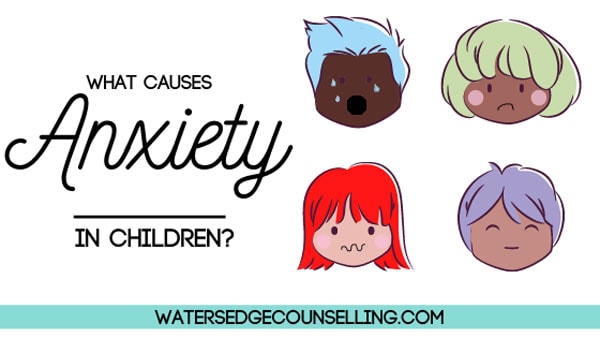
We all get anxious from time to time and children are no different. In all cases it’s important to help your child understand why they feel anxious and how they can manage it. If your child develops these skills early on, they’ll be in a much stronger position to deal with the various challenges all of us encounter later in life.
Some children are more anxious than others
According to the Mental Health Foundation, many children have an inherited predisposition towards anxiety. If you or your partner have suffered from anxiety then it’s worth being on the look-out for tell-tale signs of anxiety in your child.
Gaining a better understanding of anxiety and how to manage it will bring benefits to both you and your child, and fortunately there are now more free resources available online than ever before.
Your child needs routine, particularly at bedtime
The NHS recommends adhering to a daily routine as a way of easing anxiety in children. This is particularly important at bedtime. According to Little Lucy Willow, “when it comes to bedtime, routine is king and can have a huge impact on many areas of your child’s life. Their school work, their mood, their general wellbeing.”
Sleep, and the routine prior to sleep, will help minimise the risk of your child becoming anxious and promote healthy brain development. It will also help soothe any existing anxiety. Everything always feels better after a good night’s sleep!
Children pick up on tension within the family
You don’t need us to tell you that parenting is hard work. We’ve all experienced times when we’ve gotten angry or upset at a loved one, or maybe said something that, in hindsight, we didn’t really mean.
Arguments or outbursts within the family can have a serious impact on a young child, causing anxiety and other mental health problems. Learning how to manage your own anger and stress is key to promoting good mental health, both for you and your child.
Separation anxiety is normal but needs to be monitored
Up to the age of 3 years it is normal for a child to show extreme distress when separated from their parent or carer. This can result in tantrums, clinginess and “acting up”, for example when a parent is heading out to work.
If this behaviour continues beyond the age of 3 you will want to take steps to address it. For example, you should:
- Ensure your child has a wide range of experiences, particularly involving meeting other people.
- Allow your child to make their own decisions about certain things, helping them develop their confidence and independence.
- Make sure your child has at least one night away from home prior to starting school. This could be a visit to a grandparent or a sleepover at a friend’s house.
Overuse of electronic devices
We live in a world where portable screens and the internet are commonplace, and it’s normal for your child to want to experience these things. Beyond the obvious importance of keeping your child safe online, electronic devices can lead to poor sleep hygiene which can in turn be a trigger for anxiety.
Little Lucy Willow highlights the problem of allowing young children to keep their electronic devices in their room overnight, stating that ‘many children will wake up in the middle of the night and reach for their phones to check messages or play games. This ultimately leads to extremely bad sleeping habits. Make a non-negotiable rule that phones and tablets must be kept elsewhere overnight’.
Going through changes
Life doesn’t always go according to plan, and this often results in significant changes to things like work, relationships and where you live. According to child psychologist Amanda Gummer, when it comes to change, children tend to focus on what they are losing rather than what they are gaining.
Taking time to talk to your child about the reasons behind the change, and helping them see the positive gains that the change will bring, will reduce anxiety and build confidence. Involve them as much as you can in the process of change, and try to include them in decisions by asking for their help.
Anxiety is normal and manageable
It is normal for your child to be anxious from time to time, but it’s important to keep an eye out for those early warning signs that could indicate a larger problem later in life. By being vigilant and taking simple steps early on you’ll be helping your child to get a great start in life.
Is your child showing signs of anxiety? Do they panic, or struggle to be away from you? Here’s what you need to do: Contact Colleen on 0434 337 245 or Duncan on 0434 331 243 for a FREE 10 minute consultation on how we can best help you or book online now.
Leave a Reply